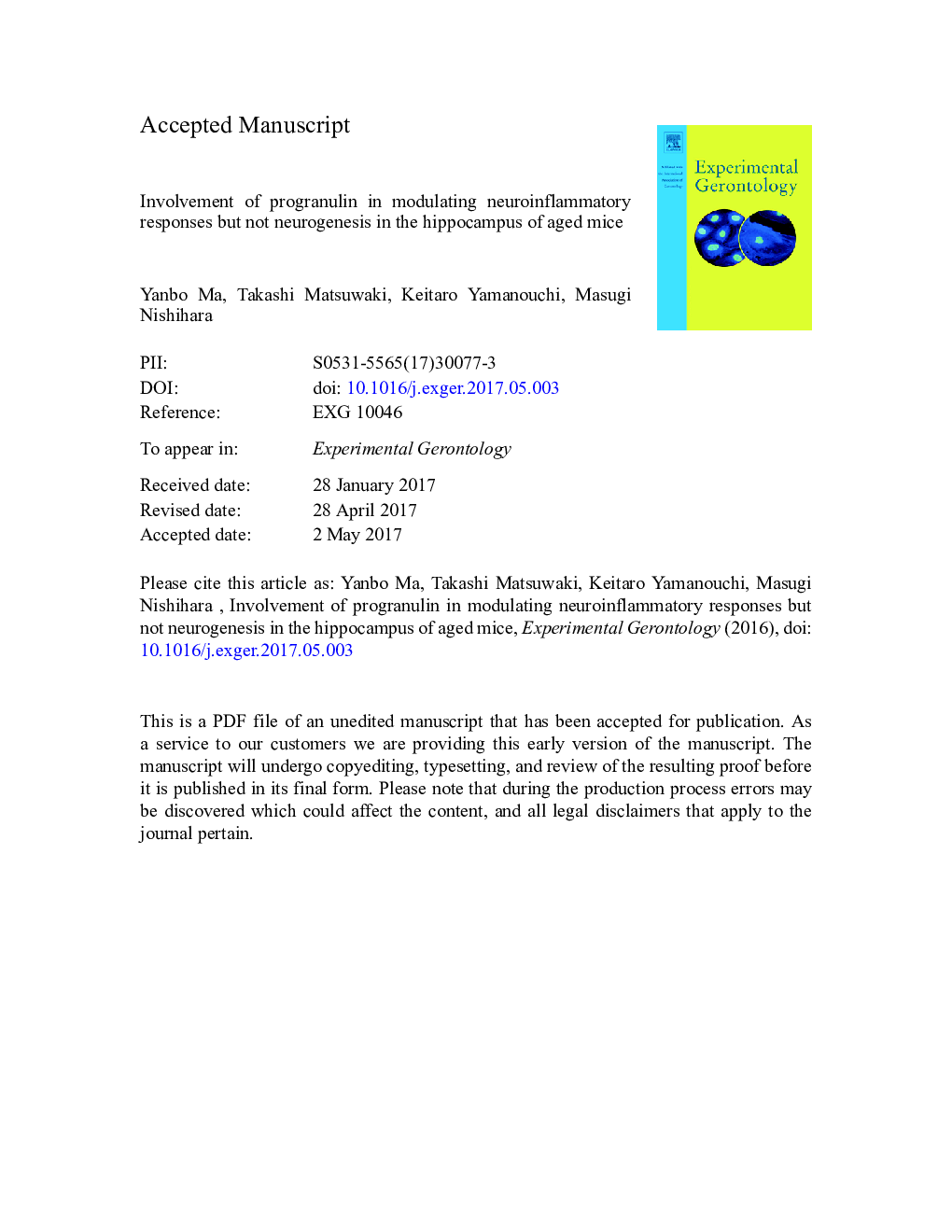| Article ID | Journal | Published Year | Pages | File Type |
|---|---|---|---|---|
| 5501292 | Experimental Gerontology | 2017 | 32 Pages |
Abstract
It is well established that adult neurogenesis in the hippocampus declines with age. Our previous studies have suggested that progranulin (PGRN) has a facilitative effect on hippocampal neurogenesis. We have also shown that PGRN plays a role in suppressing excessive neuroinflammatory responses in the cortex and thalamus after brain injury and aging, respectively. However, the roles of PGRN in modulating neurogenesis and neuroinflammatory responses in the hippocampus of aged animals are not yet understood. In the present study, we investigated neurogenesis and neuroinflammation-related responses in the hippocampus of young (15-week-old) and old (135-week-old) wild-type and PGRN-deficient male mice. Neurogenesis in the dentate gyrus of the hippocampus markedly declined with age, and there was no significant difference between the genotype. The number of CD68-positive activated microglia and the expression of lysosomal genes in the hippocampus were significantly increased with age, and PGRN deficiency further increased them. The expression of pro-inflammatory genes was also increased with age, and PGRN deficiency significantly enhanced some of them. These results suggest that PGRN deficiency exacerbates neuroinflammatory responses related to activated microglia in aged animals, while PGRN may not counteract the decline of hippocampal neurogenesis with age.
Keywords
Related Topics
Life Sciences
Biochemistry, Genetics and Molecular Biology
Ageing
Authors
Yanbo Ma, Takashi Matsuwaki, Keitaro Yamanouchi, Masugi Nishihara,
